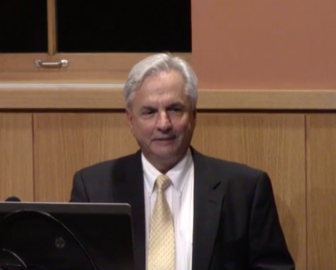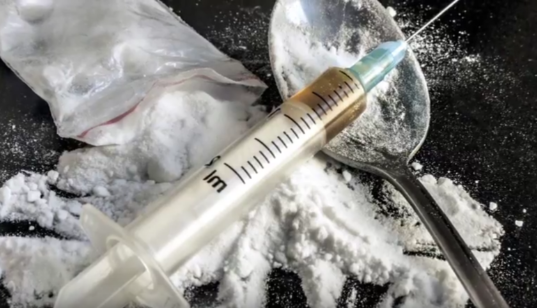Deaths from drug overdoses, primarily opioids like heroin, rose to 900 statewide in 2016 and are expected to reach 1,000 this year, and Darien Health Director David Knauf is proposing that overdose incidents (fatal or not fatal) be reported to each local health director.

Darien Health Director David Knauf (file photo)
A number of other diseases, health conditions and deaths must be reported to local health directors and the state Medical Examiners Office now. But drug overdose incidents aren’t on that list.
Knauf expects to submit testimony to the state Reportable Diseases Advisory Committee in the hope of getting its endorsement of the idea, which would have to be approved by the Connecticut Department of Public Health.
He says there seems to be support for the move from other state and local health officials in Connecticut, so he’s hopeful the policy will be adopted here. Six other states mandate reporting of overdoses, Knauf said.
In a recent letter to a state Health Department official, Knauf said, “there is no current centralized data collection point for overdose survival, and no centralized data collection point for Narcan administration.” (Narcan is a medicine used to treat opioid overdoses.)
In his Nov. 2 letter to Dr. Matthew L. Carter, the state epidemiologist and director of infectious diseases for the state Health Department, Knauf indicated that when local health directors know when opioid deaths are rising in their community, they have a better chance of directing resources to counter the problem.
Knauf wrote:
Local health directors are responsible for ensuring the provision of essential public health services at the local level in Connecticut. Critical to meeting the need to adequately serve our communities in this time of crisis is access to a uniform statewide data base and reporting system.
Adding overdoses to the list of reportable diseases will enable local health directors to perform their mandated duties of monitoring the health trends within their communities and will provide meaningful data that is essential when formulating an effective response to this crisis. I strongly urge the Committee add overdoses to the list of reportable conditions.
Darien police in recent years have complained that area hospitals sometimes knew of overdose cases in town that police were never told about.
Police have since said that they’ve come to arrangements with local hospitals to get some information that wouldn’t violate federal privacy law but could help law enforcement officials stay alert to safety problems associated with overdoses.
Knauf, who is co-chair of the Ad Hoc Substance Abuse Committee of the Connecticut Association of Directors of Health, expected to be submitting testimony on Thursday, Nov. 9.
The state already mandates reporting for serious health conditions to local health directors, as this policy from the state epidemiologist says:
“1. Every health care provider who treats or examines any person who has or is suspected to have a reportable disease, emergency illness or health condition shall report the case to the local director of health or other health authority within whose jurisdiction the patient resides and to the Department of Public Health.
2. If the case or suspected case of reportable disease, emergency illness or health condition is in a health care facility, the person in charge of such facility shall ensure that reports are made to the local director of health and Department of Public Health.”
State and local health departments are exempt from federal health information privacy restrictions that apply to organizations, including police (who would need a warrant signed by a judge to get them).

